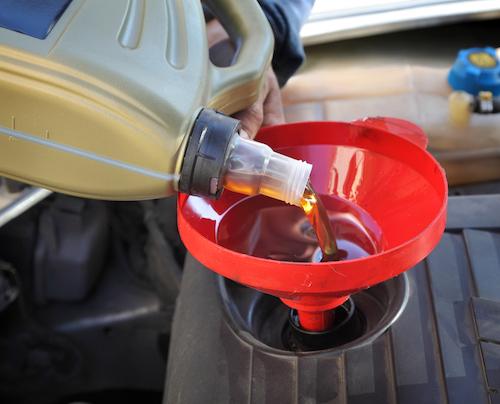Used Car and New Car Maintenance: What to Know About Oil Changes
Maintenance of your vehicle is critical to its ongoing, steady performance. And chief among those maintenance tasks is changing your car oil.
But how often do you change it? When is the right time to change it? What type of oil does your vehicle need? Because car oil has changed so much the answer to these questions might surprise you!
Here’s what you need to know for good used car and new car maintenance.
When to Change Your Oil
It doesn’t matter whether your vehicle is used or brand new, you still need to make use of your owner’s manual! Don’t make assumptions on when to change your oil based on past experiences because the recommendations have all changed.
Many vehicles now have service reminder monitors that alert you when it’s time for an oil change. Consumer Reports’ chief mechanic, John Ibbotson says, “These systems typically monitor the number of miles a vehicle has traveled, and they also sense how hard the car is being driven and adjust accordingly.”
If you don’t have a service reminder monitor, the rule of thumb has been every 3,000 miles or every 3 months. Due to advances in engines and car oil, that guideline is now obsolete.
The new guideline recommends an oil change every 7,500 to 10,000 miles, and six or 12 months as an average time.
But it’s not just about mileage.
Oil, as it ages, becomes less effective. For vehicles that are parked more than driven, not having a warm engine for the oil to circulate can cause excess moisture to form in the engine. That moisture does not get removed, and that can lead to a shorter life for your engine.
So even if you don’t drive your vehicle often, change the oil at least twice a year.
How Often to Check Your Oil
Consumer Reports has found through their reliability survey that even newer cars can need to have the oil topped off between changes.
That’s why we recommend a monthly oil check. If you find a leak, get it repaired immediately. When you do this check, pay attention to the color of the oil which should be brown or black.
If it has a light, milky appearance, there could be coolant leaking into the engine. You also want to check for any metal particles as it could signal internal engine damage.
Choose the Right Oil for Your Vehicle
With many newer vehicles, the weight of the motor oil is printed on the cap. If you have an older vehicle and weight is not printed on your oil cap, check your owner’s manual for instructions.
Here at Joe Bowman Auto Plaza, our Chevy certified technicians can help you determine just what your vehicle needs.
For example, one of the questions our technicians are asked is, “I have an older vehicle. Do I need a special oil for it?” Their answer is if your vehicle is running well with its current oil, don’t change it. You most likely don’t need it.
Just keep an eye on your vehicle’s performance. If it changes, bring it in to be evaluated.
What About Synthetic Oil?
Synthetic oil is relatively new to the marketplace. It is designed to last longer by resisting oil breakdown, and it can withstand high temperatures. The downside is it’s more costly.
Generally speaking, you only need synthetic oil if the manufacturer calls for it.
That said, there are some situations where that resistance to oil breakdown can prolong engine life.
For example, if you make a lot of short trips, standard motor oil may not get warm enough to burn off impurities and moisture. That means the oil can’t do enough to protect your engine.
If you live in a climate with very cold winters and very hot summers, synthetic oil may be a better fit. Again, consult your owner’s manual.
As with any used car and new car maintenance, you want to tailor your maintenance to the needs of the car.
For expert car care, turn to the Chevy certified technicians at Joe Bowman Auto Plaza. We’ll keep your car in tip top shape.
Learn more about us here.


